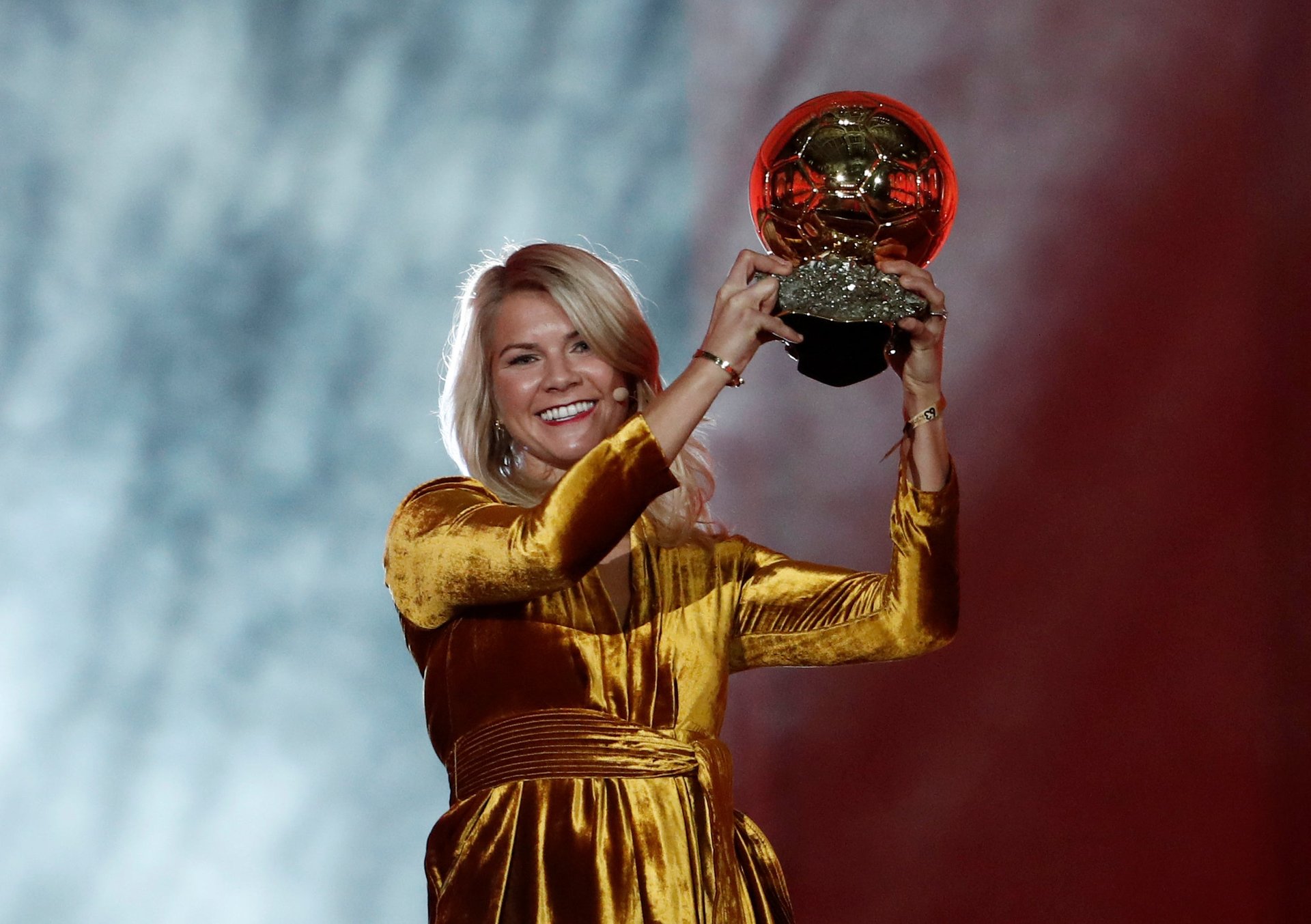The world’s best footballer showed us how to avoid a tired sexist trap
It was one of the most incredible moments in the history of women’s sports—or it should have been.


It was one of the most incredible moments in the history of women’s sports—or it should have been.
Norwegian footballer Ada Hegerberg, just 23, was named the inaugural winner of the Ballon d’Or Féminin, yesterday (Dec. 3), recognizing her as the world’s best female player. She’s had an extraordinary run playing for Lyon, scoring a record 15 goals in this year’s Champions League season and leading the team to its third straight title.
The Ballon d’Or puts her at the top of her profession, in the ranks of such greats as Cristiano Renaldo, David Beckham, Lionel Messi.
Yet when Hegerberg stepped up to receive her prize in Paris , the host, French DJ Martin Solveig asked her a question that stopped her in her tracks: “Do you know how to twerk?”
“No,” she replied, in French, and began to leave the stage.
She could not have handled it better.
Hegerburg has been magnanimous about Solveig’s question. “He came to me afterwards and was really sad that it went that way,” she told the Guardian. “I didn’t really consider it sexual harassment or anything in the moment. I was just happy to do the dance and win the Ballon d’Or.” The DJ, for his part, has issued his own sorry-if-you’re-offended apology via Twitter.
Hegerburg may recognize that it was intended as a joke, but that’s not the same thing as finding it funny. Asking a world-class pro if she knows how to twerk at the apex of her career is sexism, plain and simple.
This is the more ribald cousin of questions about who an actress may be wearing, rather than the film she is promoting, or of referring to someone as accomplished as human-rights lawyer Amal Clooney in terms of her marriage instead of her professional achievements. These remarks, whether they’re intended maliciously or otherwise, attempt to strip women of their success: You might be the world’s best football player, but we’re just here to see you shake your bum.
There’s an implicit trap in these questions, on stage, on the red carpet and in the workplace. If women go along with it—release the nudes, do the dance, make an idiot of themselves—they’re a laughing stock who won’t be taken seriously. If they call out the sexism and its perpetrator, they’re tarred as joyless and a shrew. (They won’t be taken seriously then, either.)
Both kinds of attacks distract attention away from the apparently terrifying facts of the matter: Women are winning—and they deserve to be respected for it.